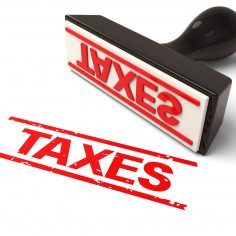California state marijuana excise tax could go up July 1
Although the California marijuana industry has hoped for tax relief as it struggles to compete with a thriving illicit market, a tax increase could be on the way.
A tax hike would hit cannabis companies’ bottom line and could drive more consumers into the illicit market in search of cheaper marijuana products.
But an increase isn’t a foregone conclusion. Moreover, a tax cut could occur.
The California Department of Tax and Fee Administration (CDTFA) uses a 60% markup rate, along with the average market price of wholesale marijuana, as a basis for the state’s 15% marijuana excise tax.
That markup rate has to be recalculated every six months, and CDTFA Director Nicolas Maduros told an industry conference this week in Sacramento the excise tax may go up this summer.
“We’re responsible for resetting that markup rate every six months, so it will be reset July 1,” Maduros said, when asked during a panel with other MJ regulators.
“It’s based on market data, and I think particularly once …track-and-traceis more fully utilized, that we’ll have some better pricing data to figure out what that markup rate should be,” Maduros said.
The state track-and-trace system launched in January but is only used by cannabis companies with annual business licenses.
And so far just a fraction of the legal companies have obtained those permits, which means most of the industry isn’t feeding data into the track-and-trace system.
“We’re administrators, so it’s not up to us to sort of use that as a way to lower or increase the tax burden. We’re simply looking at what the facts are. It’s up to the legislature … to determine what the actual tax rate is,” he said.
When asked if the markup rate – and therefore the excise tax – could increase, Maduros said: “It could.”
It’s worth noting, however, that the rate also could either decrease or stay the same.
A CDTFA spokesman said in an email that there’s also no cap on how much the markup rate could increase – or decrease.
What a markup could mean
Maduros said after the panel that any decision on the markup rate and the excise tax will not be made until June at the earliest.
The markup recalculation would not affect the state cultivation tax, which is $9.25 per ounce of flower, $2.75 per ounce of leaves and $1.29 per ounce of fresh plant.
California Cannabis Industry Association Spokesman Josh Drayton said that a tax increase “would only further damage the supply chain as it competes against the illicit market.”
But, Drayton emphasized, it’s possible the excise tax may either stay the same or even decrease, and said it’s too early to tell what will happen with the CDTFA’s recalculation.
“I think we need full implementation of Metrc and track-and-trace before we consider any increase,” Drayton said.
“We have not seen any data that would support an increase in the excise tax for any part of the supply chain.”
Separately, a state bill to temporarily reduce state cannabis taxes is awaiting hearings in the California Legislature.
If successful, Assembly Bill 286 would reduce the excise tax from 15% to 11% and suspend the cultivation tax until 2022.














